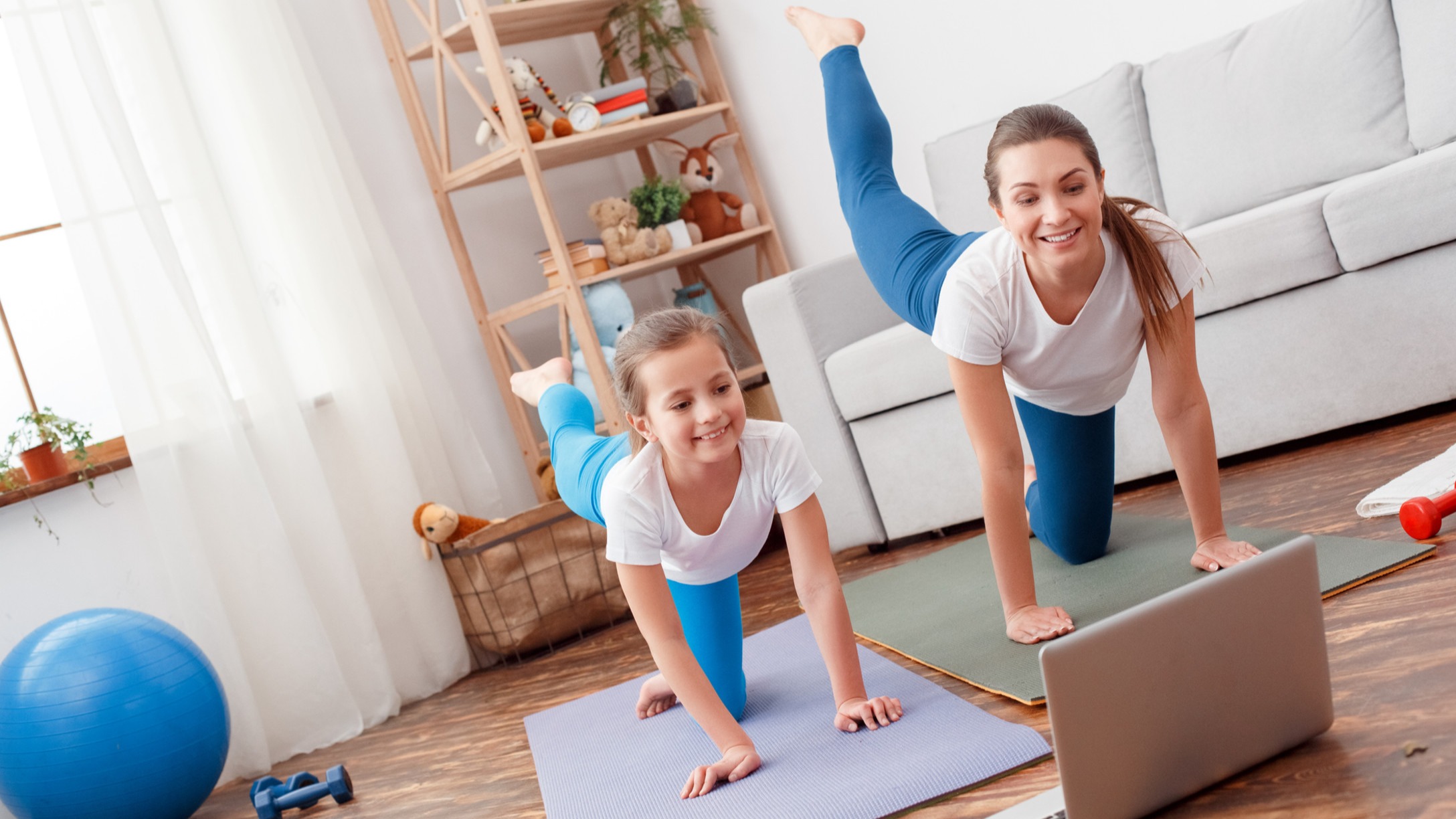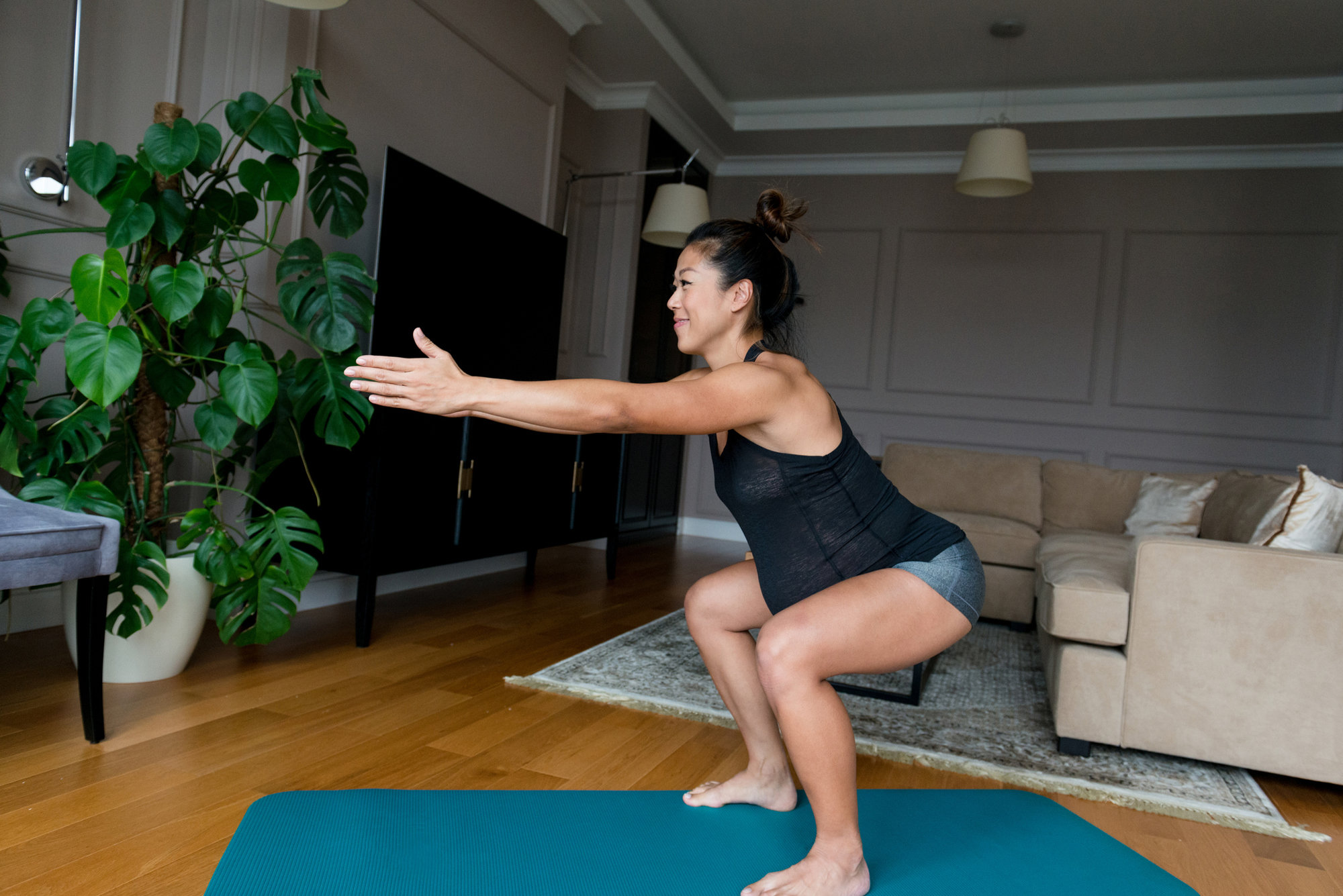
It’s December 26, and as I pull into my gym parking lot, I notice how many empty parking spots there are. But I know in seven days, it will be overflowing with eager gym goers ready to start fresh. In the last week of January, the number of cars will be fewer. And there will be even fewer by the first week in March.
Throwing yourself into lofty fitness goals in the new year is easy. Everything is shiny and fresh. You’re full of determination and thrilled by the new year's clean slate. You’ve got an empty planner and plenty of ambition.
More from CafeMom: 20 Must-Have Items for Creating a Home Fitness Routine
Don’t get me wrong: I am not knocking a good fitness or gym routine. Or intentional new year goals.
It’s just that, unfortunately, goals are fairly easy to set and hard to sustain. That’s the plan, isn’t it? Sustainable goals and habits.
For goals to “work,” they need to be repeated over and over (and over and over) again. To put it simply, long-term goals work because they’re easy to follow through with and difficult to give up.
Creating habits happens slowly but consistently. Some have said that it takes 22 days to make a habit. New studies, however, reveal it takes closer to 66 days.
Two months.
So if it takes two whole months to sustain a habit or goal, how can we keep it up?

How can we achieve the fitness goals we want in any year but especially in the new year?
Reevaluate your why.
Find out what sustainable goals look like for you. Discover why you should shoot for small, sustainable goals instead of the shiny end prize. Sustainable fitness goals happen over time.
That also means they take time. The best way to think about this is to break up your goal into smaller, more attainable chunks.
More from CafeMom: 15 Celebrities Share Their Best Fitness & Diet Tips
This creates more sustainable success.
Say you want to run more. Great! Instead of aiming to get your best mile time, aim to run without stopping for a quarter mile or a half mile. (Especially if you’ve never run before!)
Then once you have those down, aim to run a whole mile without stopping. Then work on getting faster. This mentality is also better for your body, because it builds strength slowly. This process reduces the chance of injuries, too, so it’s better for you long term.
If you start out wanting to run the fastest mile you’ve ever run, you’re going to be pretty disappointed when you’re struggling to run a quarter or a half mile.
Give yourself some wins along the way. This will decrease the chances of you giving up your fitness goals.
Why focus on sustainable goals Instead of an all-or-nothing mindset?

Currently, I am in my 30s. I’ve had two kids and my body has rearranged its organs to do so. I’ve also gone through two vastly different postpartum periods.
Life has changed. My body is a lot different from what it was in my 20s before babies. Life isn’t going to stop happening to me or my body. But I’ve recognized that prioritizing my fitness is more important than ever.
For the long haul.
The biggest reason for reevaluating my fitness goals in the new year is that my goals aren’t just for the coming year.
My goals aren’t just for the body I want to have in the next 365 days. Instead, they’re for the body I want to have for the rest of my life. I am no longer working on my fitness for just the new year.
Muscle mass decreases as we age. Even as young as 30. Muscle mass decreases approximately 3 to 8% per decade after the age of 30, and this rate of decline is even higher after the age of 60.
I recognize that I have to work for every ounce of muscle I want to gain.

Working toward the body I want in my 40s — and my 80s — has allowed me to give myself grace. But it’s motivated me toward something greater, too.
I’ve moved past the all-or-nothing January 1 mindset I used to adopt toward the end of December. My mind is on the long haul: sustainable and practical goals I want to carry with me for the rest of my life.



